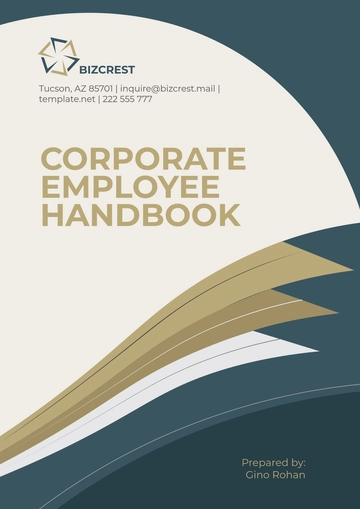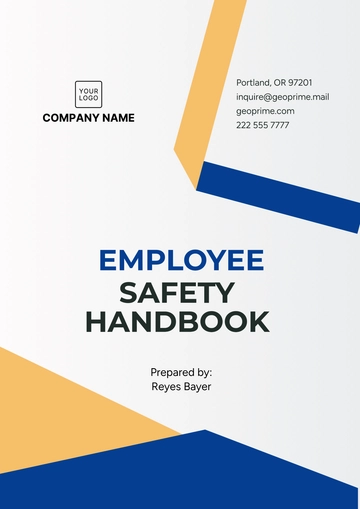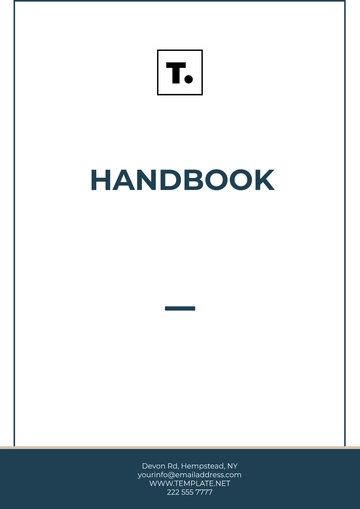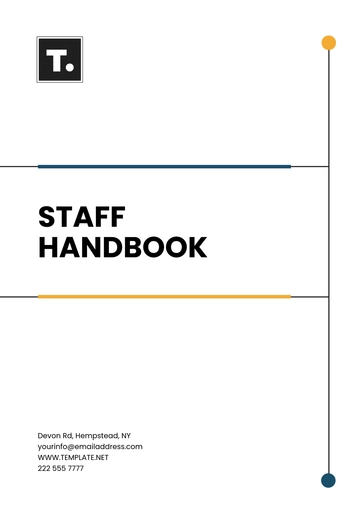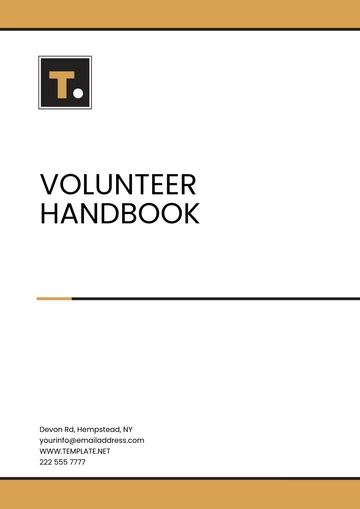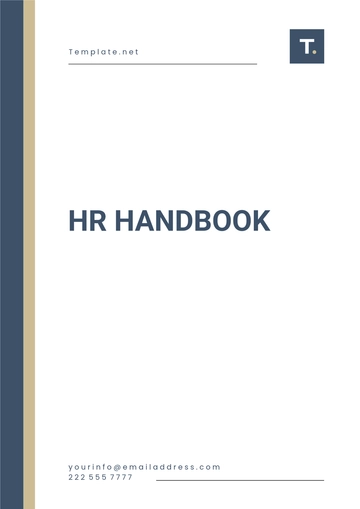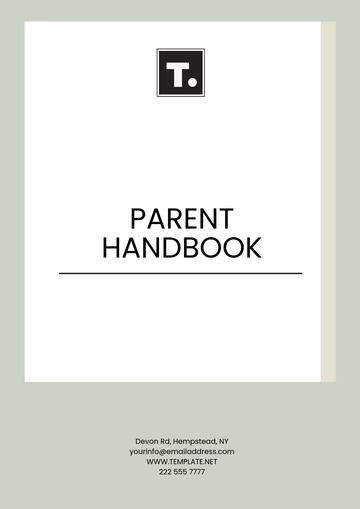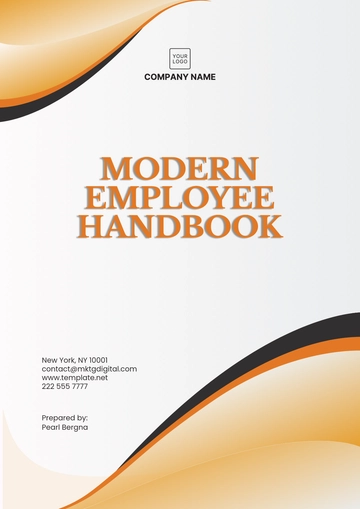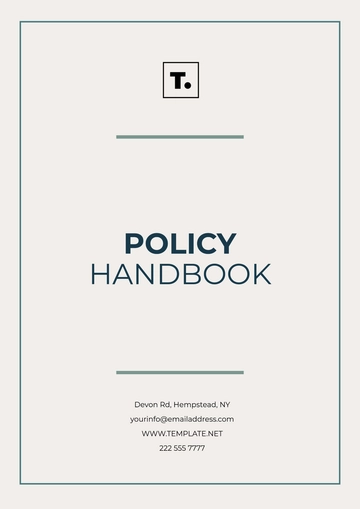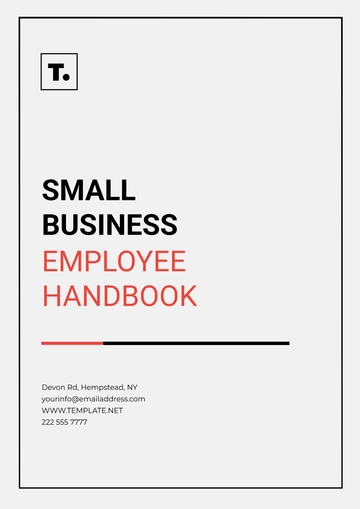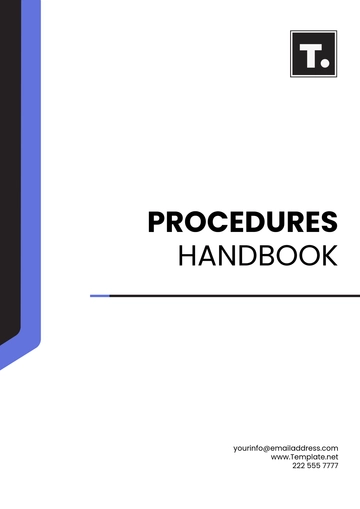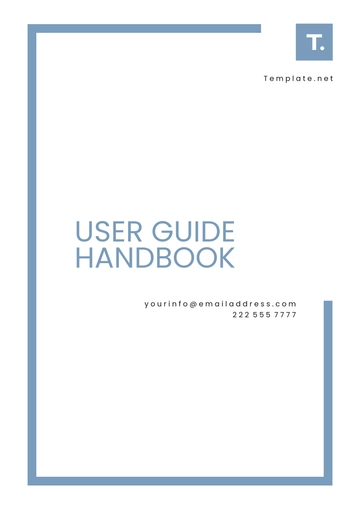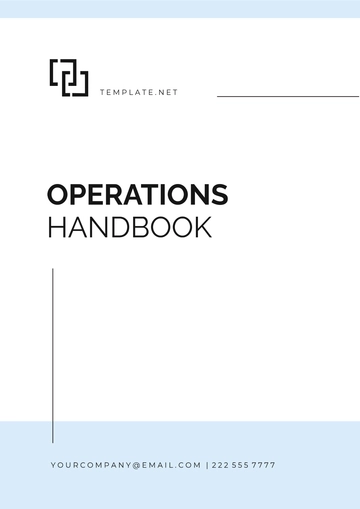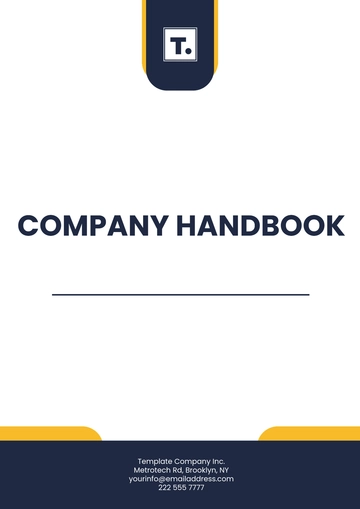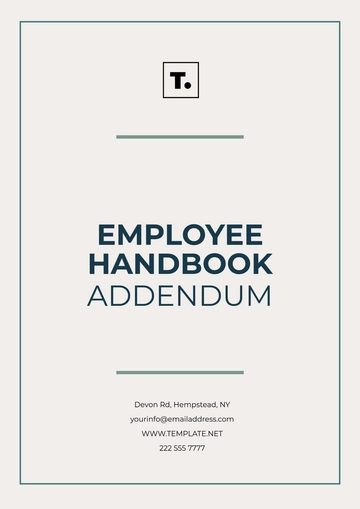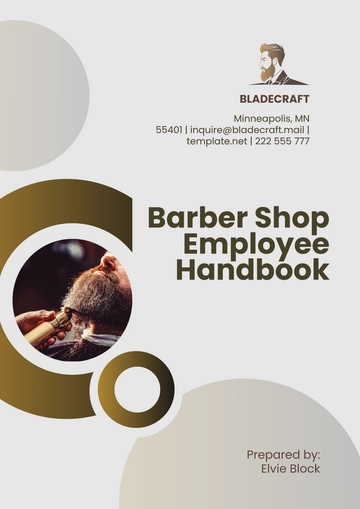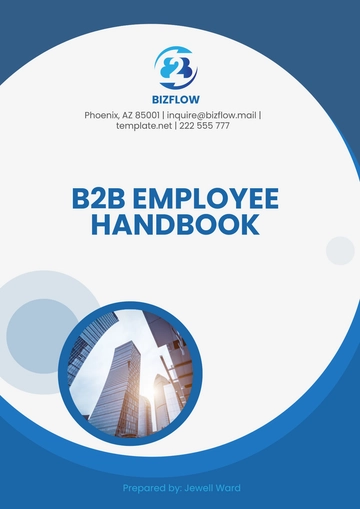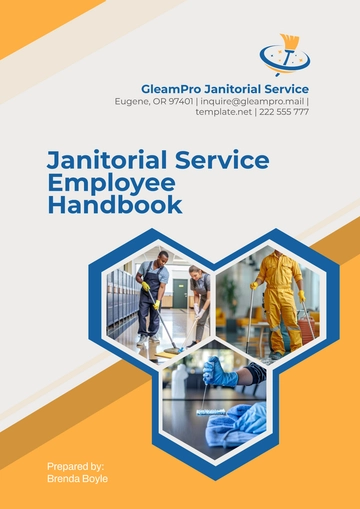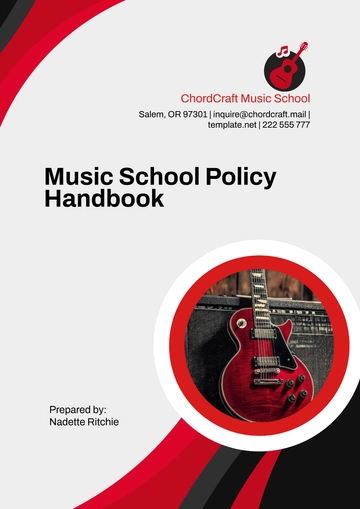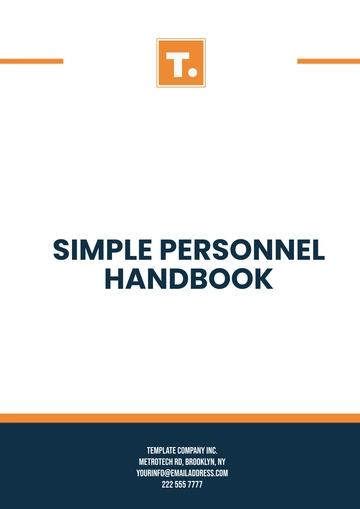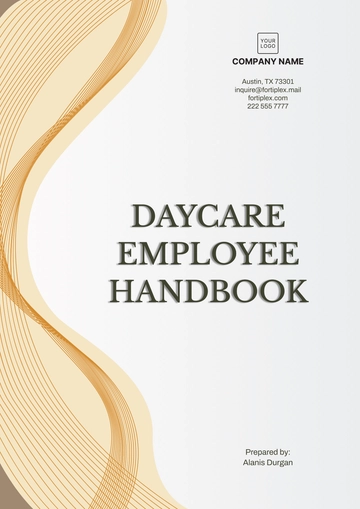Free Advertising and Promotion Legal Handbook
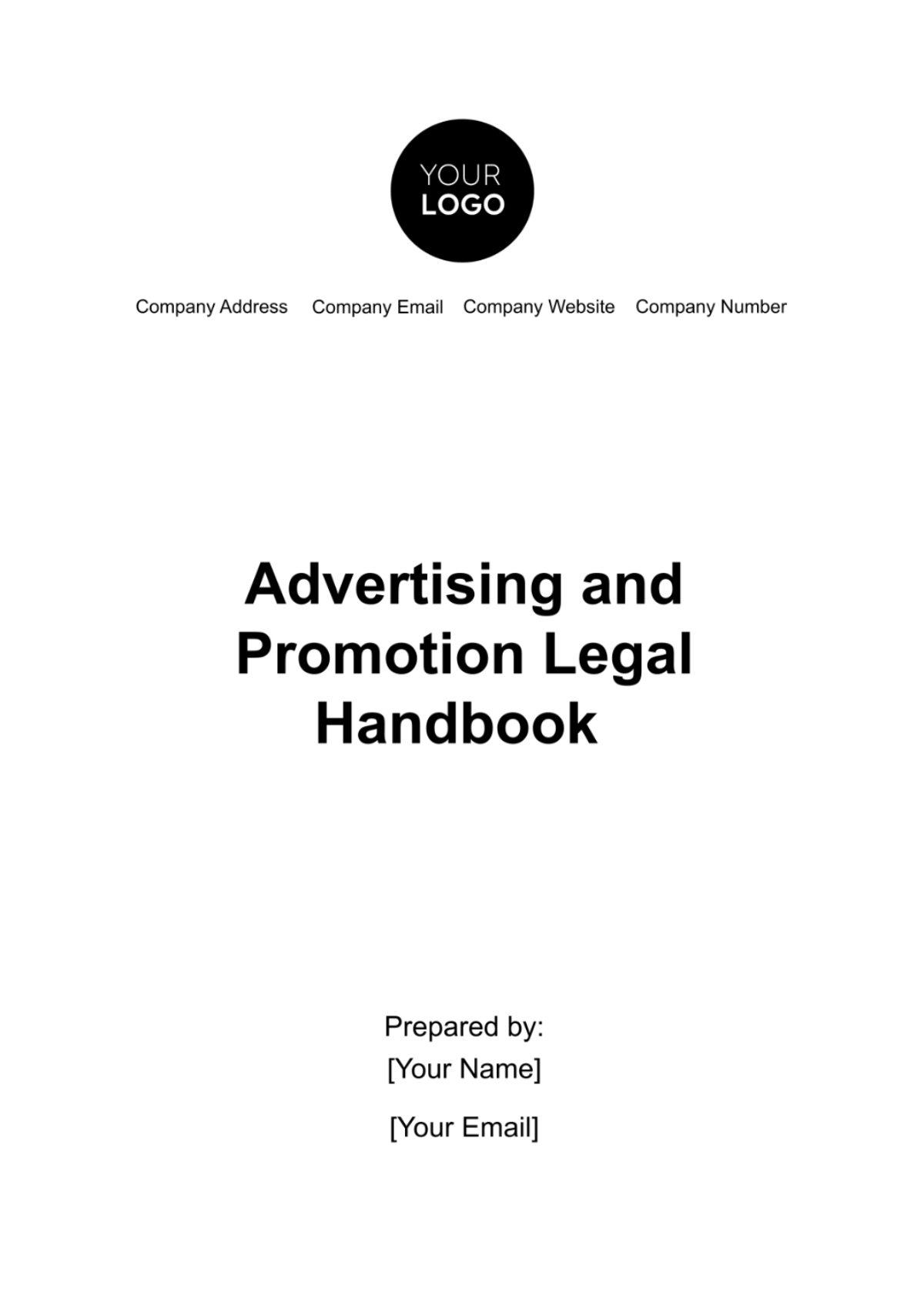
1. Introduction
The primary purpose of this Advertising and Promotion Legal Handbook is to serve as a resource for all employees and partners of [Your Company Name] involved in advertising and promotional activities. It is intended to provide clear and practical guidance on the legal intricacies associated with these activities, ensuring that all actions undertaken by the company are in full compliance with the relevant laws and regulations.
Legal Compliance:
Adhering to these laws is a crucial element in maintaining the company's reputation and integrity. Failure to comply with these regulations can have severe consequences, including legal actions, substantial fines, and harm to the brand's image.
2. Advertising and Promotion Regulations
Federal Regulations:
The federal regulations are multifaceted and include laws such as the Federal Trade Commission (FTC) Act and the CAN-SPAM Act. The FTC Act, for instance, prohibits deceptive and unfair advertising practices, emphasizing the importance of honesty and transparency in promotional content. The CAN-SPAM Act, on the other hand, sets guidelines for commercial email communication. Familiarizing yourself with these federal regulations is essential to ensure that our advertising campaigns are not only effective but also legally sound, protecting both the company and our consumers.
State and Local Regulations:
State laws can introduce variations and additional requirements that must be observed. These regulations may encompass issues such as specific product labeling requirements, pricing disclosures, and even restrictions on advertising to certain demographics. By understanding and complying with state and local regulations, [Your Company Name] demonstrates a commitment to legality and responsibility, even in jurisdictions with unique legal demands.
Industry-Specific Regulations:
In addition to federal, state, and local regulations, [Your Company Name] must be vigilant regarding industry-specific regulations that pertain to our line of business. For instance, if we operate in the food or pharmaceutical industry, we must adhere to rigorous regulations enforced by agencies like the Food and Drug Administration (FDA). These regulations dictate how we can market and advertise our products, including requirements for labeling, health claims, and the disclosure of potential risks. Being well-versed in industry-specific regulations ensures that our advertising strategies align with the highest standards of safety, quality, and compliance, ultimately fostering trust among our consumers and stakeholders.
3. Intellectual Property
Copyrights:
Copyright protection applies to various creative works, including images, videos, and music, which are often integral to our campaigns. Respecting copyrights means obtaining proper permissions or licenses to use copyrighted materials in our advertisements. Failing to do so can lead to copyright infringement claims, legal disputes, and significant financial penalties.
Trademarks:
Trademarks are distinctive signs, symbols, or names that distinguish our brand from competitors. It is essential to use our trademarks correctly and consistently to strengthen our brand identity. Equally important is the vigilance to avoid using trademarks belonging to other companies without permission. Trademark infringement can result in legal actions and damage our brand's reputation.
Patents:
Patented products or technologies require special consideration when incorporated into our advertising efforts. Patents grant inventors exclusive rights to their inventions for a specified period. It is crucial to accurately represent patented products, avoiding false or misleading claims that may lead to legal challenges. Additionally, if our company holds patents, we should assert and protect those rights in our advertising materials to safeguard our intellectual property.
4. Advertising Claims and Substantiation
Truth-in-Advertising:
The cornerstone of our advertising practices at [Your Company Name] is the principle of truth-in-advertising. This concept requires absolute honesty and transparency in our promotional messages. We must never engage in false or misleading claims, as doing so can lead to significant legal consequences, harm our brand reputation, and erode consumer trust.
Substantiating Claims:
When making claims about our products or services, it is vital to have substantiating evidence readily available. The burden of proof rests on us to provide credible and verifiable evidence to support these claims. Whether it's asserting the effectiveness of a product or the benefits it offers, we must be prepared to back up our assertions with scientific studies, test results, or customer testimonials.
Comparative Advertising:
When comparing our products or services to competitors', we must adhere to rules and limitations set by advertising regulations. Engaging in unfair competition or making false comparisons can result in legal challenges and damage our reputation. Responsible comparative advertising, on the other hand, can provide valuable information to consumers, empowering them to make informed choices while upholding [Your Company Name]'s commitment to ethical advertising practices.
5. Endorsements and Testimonials
Disclosure Requirements:
It is imperative that we adhere to disclosure requirements when endorsers or testimonials are involved in our advertising campaigns. These requirements involve disclosing any material connections between endorsers and our company, such as payments, gifts, or affiliations. Such disclosures must be clear, conspicuous, and easily understood by consumers. Failing to make these disclosures can result in legal repercussions and damage our brand's credibility. By ensuring that we meet disclosure requirements, [Your Company Name] demonstrates a commitment to honest and ethical advertising practices.
Use of Influencers:
Collaborating with influencers can be a valuable marketing strategy, but it must be done responsibly and in compliance with guidelines. When engaging influencers, we must establish clear expectations and guidelines regarding their endorsements. These guidelines may include specifying the content they create, ensuring that their endorsements align with our brand values, and requiring them to disclose their relationship with [Your Company Name].
FTC Guidelines:
The Federal Trade Commission (FTC) has established comprehensive guidelines governing endorsements and testimonials. It is essential for [Your Company Name] to fully understand and comply with these guidelines. The FTC's guidelines require that all endorsements and testimonials, whether from customers, influencers, or celebrities, must be truthful and not misleading. Material connections between endorsers and the company must be disclosed clearly.
6. Privacy and Data Protection
Data Collection and Usage:
We recognize that customer trust is paramount, and it starts with how we handle their information. This section details how our company collects and uses customer data, emphasizing the importance of transparent privacy policies. We explain the purposes for which we collect data, how it is stored and protected, and the rights customers have over their data. By highlighting our commitment to data privacy and security, we aim to assure our customers that their personal information is handled with care and in accordance with relevant laws and regulations.
GDPR Compliance:
If we engage in advertising to European customers, we must comply with the General Data Protection Regulation (GDPR), which sets stringent standards for data protection and privacy. This section outlines our GDPR compliance measures, which include obtaining explicit consent for data processing, providing clear privacy notices, and appointing a Data Protection Officer (DPO) if required. We also explain the rights of European customers under GDPR, such as the right to access and delete their data.
CCPA Compliance:
For California residents, the California Consumer Privacy Act (CCPA) imposes specific requirements on businesses that collect and process personal information. This section underscores our dedication to CCPA compliance, detailing our obligations regarding data disclosure, opt-out mechanisms, and the right to request data deletion.
7. Sweepstakes and Contests
Official Rules:
Creating official rules for sweepstakes and contests is a fundamental step in ensuring fairness, transparency, and legal compliance. Official rules provide participants with a clear understanding of the promotion's terms and conditions, including eligibility criteria, entry methods, prize details, and important dates.
Prize Fulfillment:
Awarding prizes and fulfilling obligations to winners is a critical aspect of conducting sweepstakes and contests. Ensuring smooth and timely prize fulfillment not only enhances the overall participant experience but also avoids negative publicity and potential legal issues.
Registration and Bonding:
Depending on the jurisdiction in which we operate, there may be legal requirements for registering and bonding sweepstakes or contests. Registration and bonding are necessary to ensure that our promotions are conducted in accordance with local laws and regulations. By adhering to these requirements, [Your Company Name] mitigates legal risks and demonstrates its dedication to responsible promotional practices, even in regions with specific legal demands.
8. Social Media Advertising
Social Media Guidelines:
This section highlights the unique nature of social media advertising, emphasizing the importance of authenticity, engagement, and transparency. We provide recommendations on crafting compelling content, maintaining brand consistency, and adhering to platform-specific rules. By following these guidelines, [Your Company Name] ensures that our social media advertising efforts resonate with our audience while staying within legal and ethical boundaries.
User-Generated Content:
User-generated content (UGC) can be a valuable resource for our social media campaigns. However, it comes with potential legal considerations. In this section, we explain how to handle UGC responsibly, including obtaining permissions from content creators, respecting copyright and trademark rights, and addressing any potential privacy issues.
Sponsored Posts:
Sponsored social media posts are a common practice in influencer marketing and advertising partnerships. This section underscores the importance of clear disclosures in sponsored posts, in line with regulatory requirements, such as the Federal Trade Commission (FTC) guidelines. We detail the need for influencers and partners to disclose their material connections with [Your Company Name], ensuring transparency for the audience.
9. Advertising Agreements
Advertising agreements are essential documents that define the terms and conditions of various business relationships within the advertising industry.
Client Agreements:
Client agreements are crucial for establishing a clear understanding between [Your Company Name] and our clients. These agreements outline the scope of advertising services and payment terms.
Vendor Agreements:
Vendor agreements are used to secure the services of advertising vendors. They specify the scope of services, payment terms, and other important details.
Media Buying Agreements:
Media buying agreements are essential when purchasing advertising space from publishers or platforms. These agreements detail the terms of the advertising space purchase.
10. Advertising Disclaimers
Advertising disclaimers are essential for conveying important information and mitigating legal risks in advertising materials.
General Disclaimers:
General disclaimers serve to provide clarification, limitations, or additional information in advertising content. They are typically used when there is a need to qualify claims, indicate exceptions, or address potential misunderstandings.
Health and Safety Disclaimers:
Health and safety disclaimers are crucial, especially for products that have potential health or safety implications. They inform consumers about risks, usage instructions, and safety precautions associated with a product or service.
11. Record-Keeping and Documentation
Record-keeping and documentation are vital aspects of maintaining a well-organized and legally compliant advertising operation.
Document Retention Policy:
A document retention policy outlines guidelines for the creation, management, and retention of important documents related to advertising and promotion. It's essential for ensuring legal compliance and efficient record-keeping.
Compliance Audits:
Compliance audits are periodic assessments of advertising practices and documentation to ensure adherence to relevant laws and regulations. They play a crucial role in identifying and addressing potential issues before they become legal problems.
Incident Reporting:
Incident reporting is a structured process for reporting legal incidents or violations related to advertising and promotion. It allows [Your Company Name] to respond promptly and appropriately to any legal challenges that may arise.
Customizing and implementing these processes and policies is essential to ensure that [Your Company Name] maintains effective record-keeping, remains legally compliant, and responds to incidents in a timely and responsible manner. Legal counsel should be consulted to tailor these procedures to your specific advertising operations.
- 100% Customizable, free editor
- Access 1 Million+ Templates, photo’s & graphics
- Download or share as a template
- Click and replace photos, graphics, text, backgrounds
- Resize, crop, AI write & more
- Access advanced editor
Introducing the Advertising And Promotion Legal Handbook Template by Template.net. Meticulously crafted, this document provides a comprehensive framework for creating legally sound advertising materials. Tailored for digital technology companies, it ensures compliance with industry regulations. Download now and elevate your promotional efforts with this detailed and reliable template.
